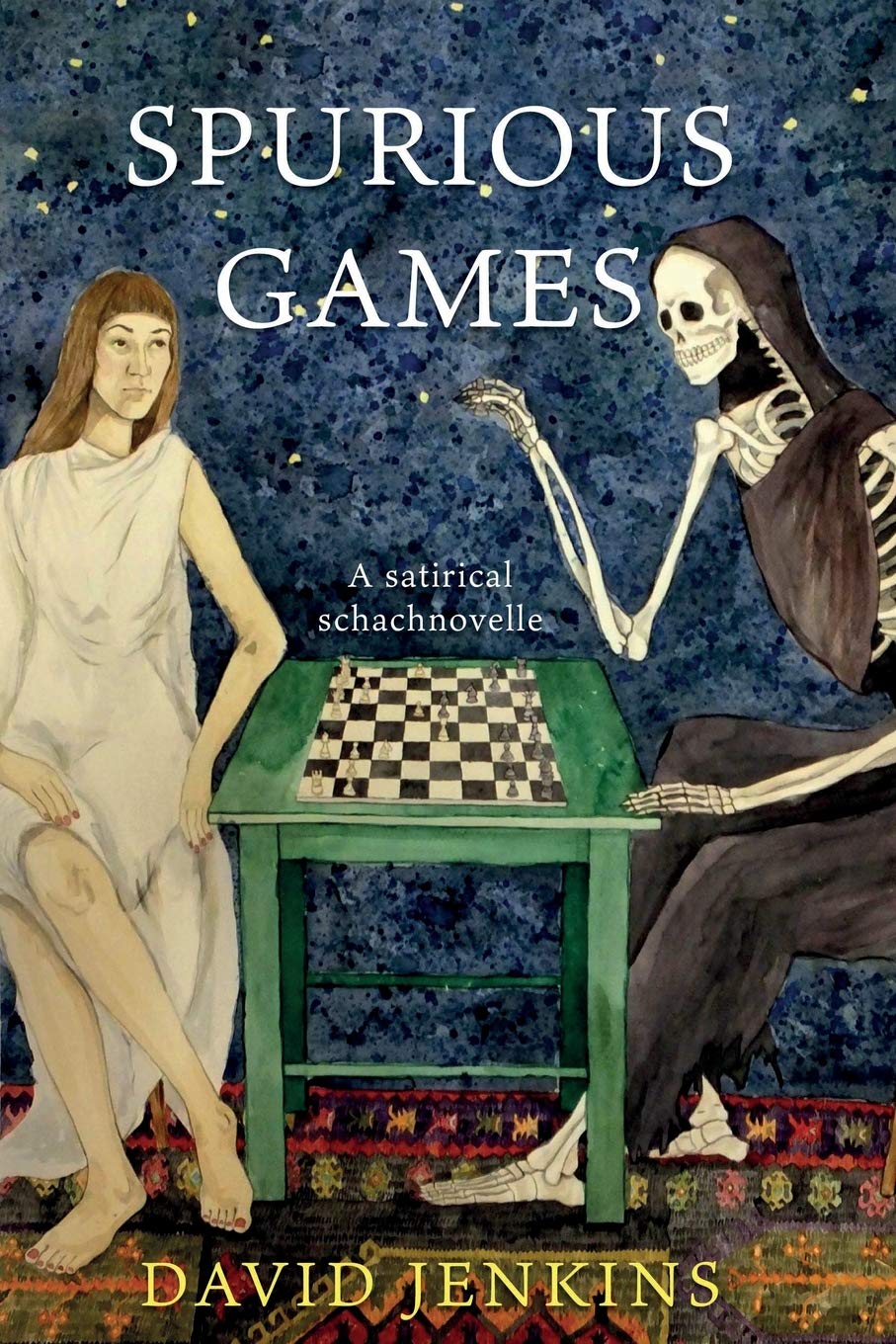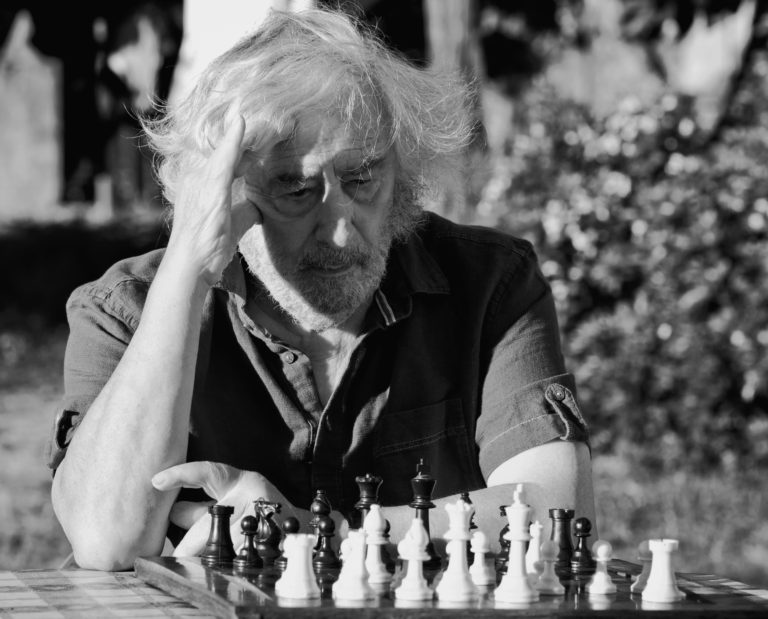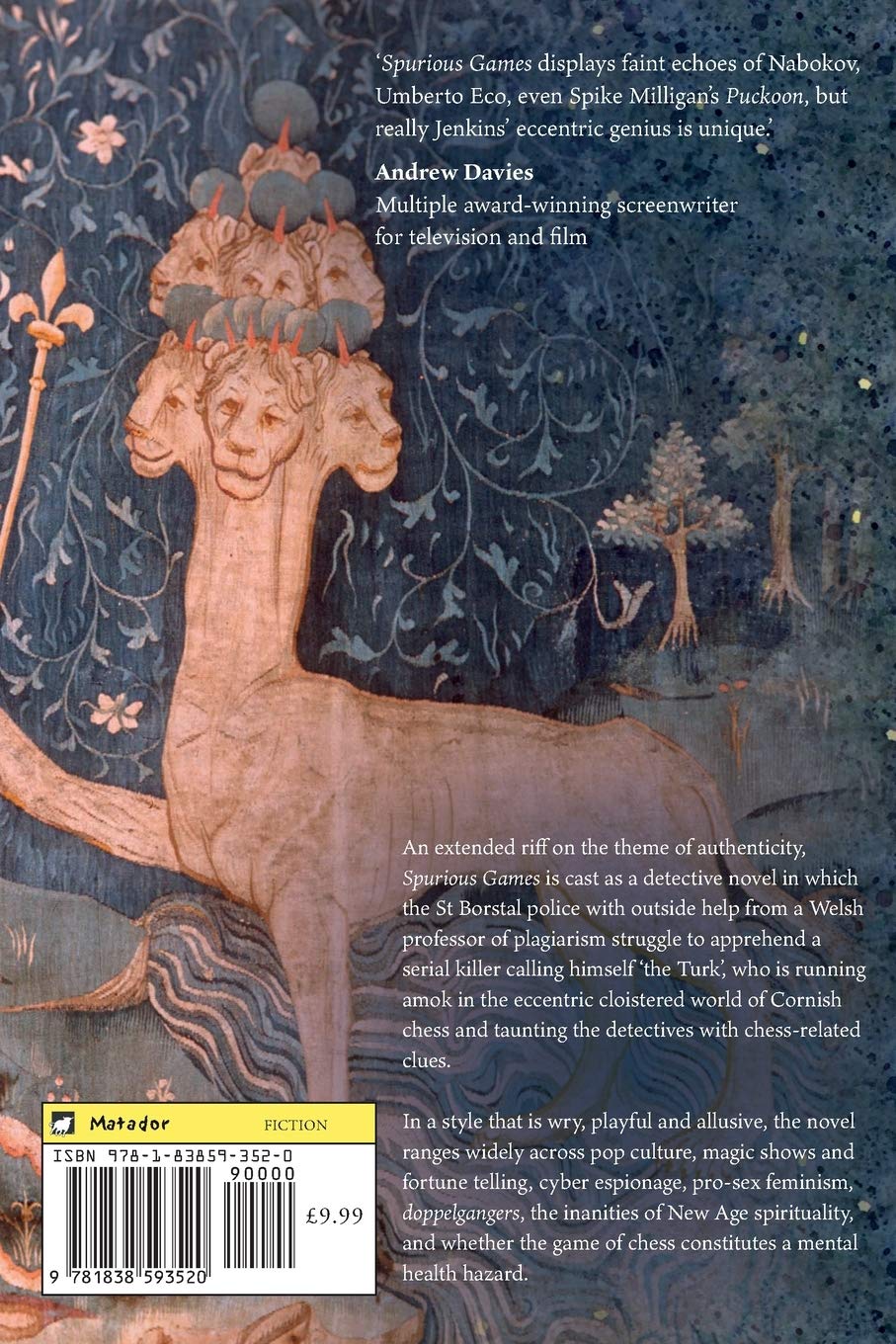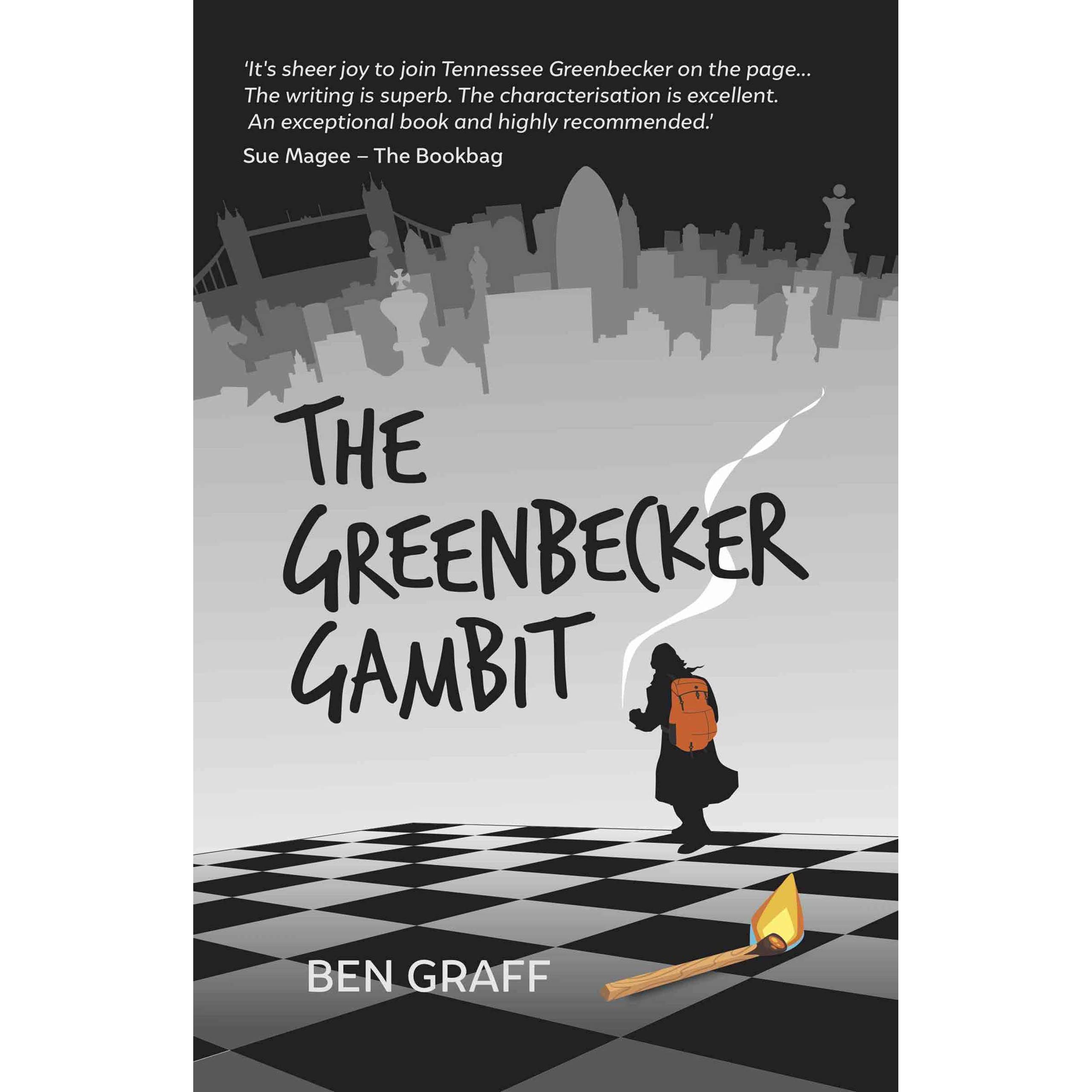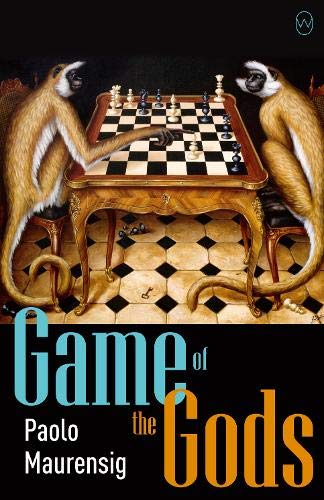
From the publisher’s blurb:
In 1930s British India, a humble servant learns the art of chaturanga, the ancient Eastern ancestor of chess. His natural talent soon catches the attention of the maharaja, who introduces him to the Western version of the game. Brought to England as the prince’s pawn, Malik becomes a chess legend, winning the world championship and humiliating the British colonialists. His skills as a refined strategist eventually drag him into a strange game of warfare with far-reaching consequences. Inspired by the unlikely true story of chess master Malik Mir Sultan Khan, Game of the Gods is a fascinating tale of karma and destiny, by the author of the multimillion-copy bestseller The Lüneburg Variation.
“Paolo Maurensig was born in Gorizo, and lives in Udine, Italy. A bestselling author, he debuted in 1993 with The Lüneburg Variation, translated into over twenty languages. His novels include Canone Inverso, The Guardian of Dreams, and The Archangel of Chess. For his novel Theory of Shadows, he won the Bagutta Prize. A Devil Comes to Town, previously published by World Editions, is a brilliant, satirical novella about literary publishing. Game of the Gods is his latest novel and was awarded the prestigious Premio Scanno 2019 Literary Award.”
Before going further you might wish to Look Inside.
I must start with a sad postscript to the blurb on the back cover: Paolo Maurensig died on 29 May 2021 at the age of 78. The game of chess provided the background to several of his novels, including this, his last published work.
The book opens in 1965: a Washington Post journalist is in the Punjab, reporting on the conflict between India and Pakistan. He had been a chess enthusiast as a boy, and had heard that his childhood hero, Sultan Khan was living in the area. They meet up and Sultan Khan narrates his life story, which takes up most of the book.
In real life, as we know, after a meteoric chess career, Sultan Khan returned to his homeland in 1933 and lived out the rest of his life quietly in what would later become Pakistan. Maurensig chooses to give his character a very different life after chess.
Here, he continues travelling with Sir Umar Hayat Khan for several years, and then is asked to take over the running of a stately home which is bombed during the war. He later finds himself in New York where he becomes a taxi driver, meeting a wealthy dowager who leaves him a fortune, causing an international scandal.
A fascinating, if improbable, story. If you want to find out how it all came about you’ll have to read the book.
Maurensig was a much respected novelist, and, as you’d expect, the book is well written and well translated.
From the chess perspective, one or two things are jarring. The continuous reference to Sir George Thomas and Frederick Yates as England’s two leading players at the time: yes, they were, but (a particular bugbear of mine) Yates was Fred, not Frederick, and would have been referred to simply as Yates. There’s also a bit about how his opponents did their best to distract him, which, to the best of my knowledge, never happened.
I suspect this novel will appeal more to non-players, who won’t be bothered by this, rather than players with some historical knowledge.
And yet, I have a major problem.
Exhibit A: here, Sultan Khan’s granddaughter, Dr Atiyab Sultan, criticises Daniel King’s otherwise excellent book, in part because of the words ‘Indian servant’. You might or might not agree with this, but here, on the back cover, the semi-fictional Sultan Khan is described as a ‘lowly servant’ and a ‘humble servant’. Author’s licence, perhaps, but in real life he certainly wasn’t ‘lowly’.
Exhibit B: here we have Nona Gaprindashvili suing Netflix for defamation and misrepresentation, in part for being described in The Queen’s Gambit as Russian rather than Georgian, but also because it was claimed she had, at that point, never played against men. You might or might not consider that she has a good case.
The real Sultan Khan was a proud Muslim, but the ‘Sultan Khan’ in this book appears to be portrayed as a Hindu. The concept of Karma, which is important in Hinduism and a number of other Indian religions, plays a significant part in the book (‘a fascinating tale of karma and destiny’, according to the back cover) but plays no part at all in Islam. Hindu deities are frequently invoked in our hero’s narration. He describes how his opponents would eat ham sandwiches, ‘perhaps imagining that I was Muslim and that the smell of pork would disturb my concentration’.
In a sense the title gives it away: Game of the Gods. Hinduism has many deities, but Islam is a monotheistic religion.
It seems to me grossly insensitive to change the religion of a historical figure in this way without any explanation, especially given the centuries-long religious tensions in the Punjab.
You might also want to question, given the continued use of monkey chants among football fans, whether it’s appropriate to use an illustration of two monkeys playing chess on the cover of a book about a brown skinned chess player.
I have no doubt that neither the author nor the publisher intended any offence, but in today’s climate we’re expected to be sensitive to the feelings of others.
In some respects this is an excellent novel, but it left me feeling uncomfortable. Perhaps it would have been better to have tweaked the story, avoiding references to any real chess players, with the protagonist coming from a Hindu background.
If you don’t have any knowledge of the subjects involved, you’ll probably enjoy this novel, but if you have any connection you may be frustrated and perhaps even offended. Caveat Emptor.
Richard James, Twickenham 23rd November 2021

Book Details :
- Softcover: 148 pages
- Publisher: World Editions (14 Jan. 2021)
- Language: English
- ISBN-10:1912987147
- ISBN-13:978-1912987146
- Product Dimensions: 20.4 x 2.5 x 13.1 cm
Official web site of World Editions


